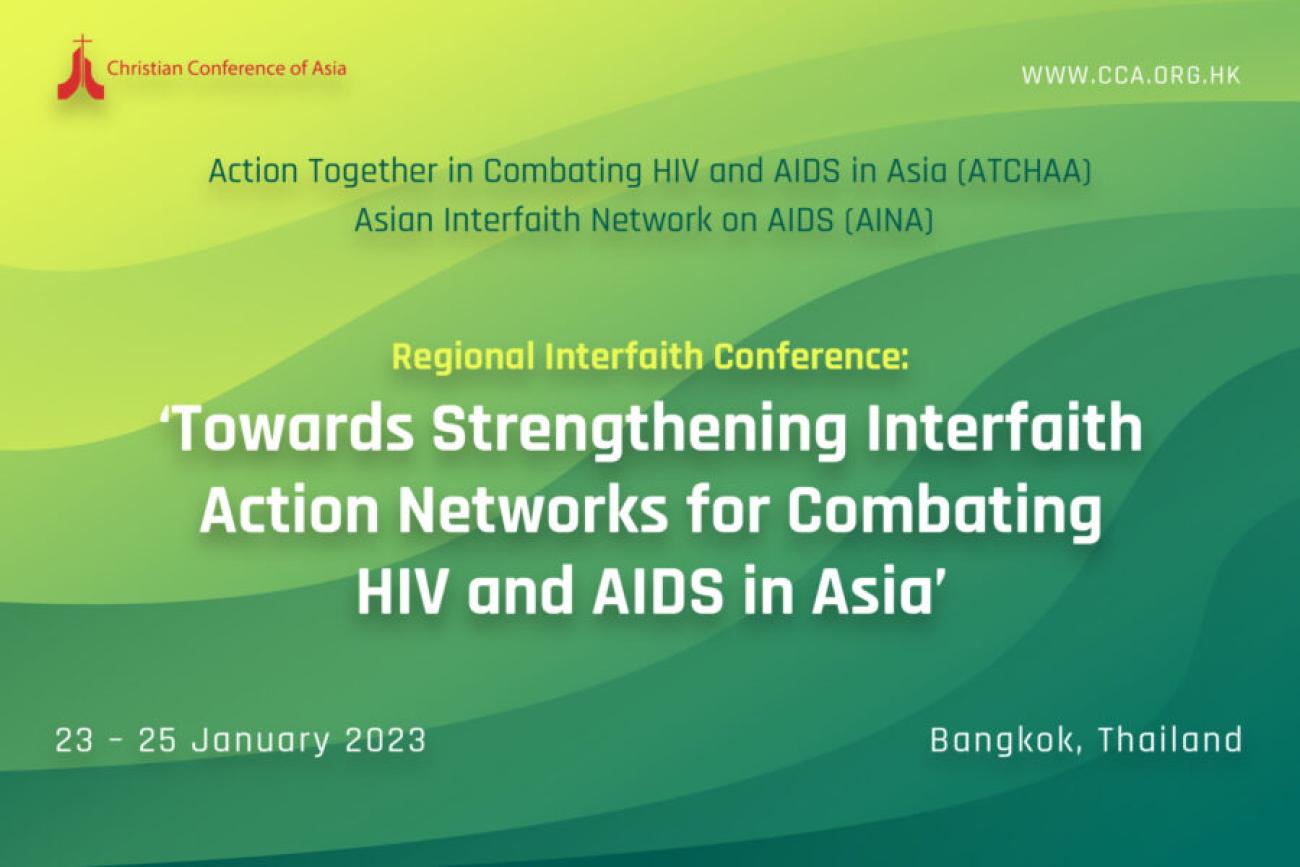CCA to revitalise interfaith networks’ action in addressing HIV and AIDS advocacy in Asia

Bangkok, Thailand: An Asian interfaith conference on ‘Towards Strengthening Interfaith Action Networks for Combating HIV and AIDS in Asia’ will be held from 23 to 25 January 2023 at the Royal Benja Hotel in Bangkok, Thailand. The three-day conference, organised by the Christian Conference of Asia (CCA), will bring together 60 participants including faith leaders from major religions, non-governmental organisations working in the field of HIV and AIDS, community leaders, and like-minded organisations, who will deliberate and strengthen the voices of the faith communities in advocating for HIV and AIDS in the region via the Asian Interfaith Network on AIDS (AINA) platform. The conference aims to provide a platform for discussion of relevant and contextual religious faith perspectives on HIV and AIDS as well as to define common strategies on the role of faith and faith-based institutions in responding to HIV and AIDS, such as prevention, health promotion, stigma and discrimination, reduction, enhanced care and support, and advocacy at all levels. The sessions and discussions will emphasise the importance of interfaith collaboration within communities in creating a harmonious environment that will foster inclusivity and acceptance, thereby overcoming the major barrier of stigma, particularly in a diverse Asian context. The conference also aims to revitalise regional and national interfaith organisations in Asia, as well as to strengthen advocacy networks and partnerships that serve as a potent force in HIV and AIDS advocacy, influencing policy level changes, reframing the law, and service delivery. The CCA’s Action Together in Combating HIV and AIDS in Asia (ATCHAA) programme continues to equip member churches and councils as well as other faith-based organisations to effectively respond to HIV and AIDS issues, particularly in Asia, which is home to six million people living with HIV and AIDS, as estimated by UNAIDS in 2021.











